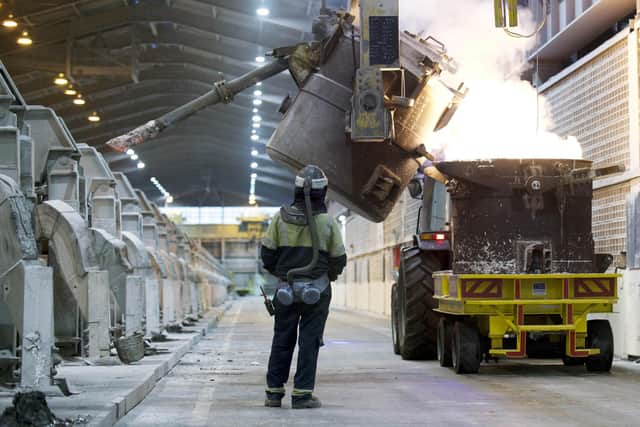GFG Alliance and Scottish Government: What we know so far
The total gross taxpayer guarantee provided to metals magnate Sanjeev Gupta’s business was £586m – an eye-watering sum at any time, but especially so when public finances are being squeezed.
That guarantee of more than half a billion pounds was provided when Mr Gupta’s GFG Alliance group purchased the smelter in Lochaber, as well as two hydropower plants, from Rio Tinto.
Advertisement
Hide AdAdvertisement
Hide AdAt the time of the deal in 2016, the guarantee made by Scottish ministers covered a quarter century of power purchases by Mr Gupta’s firm from a business owned by his father.
The idea was the now notorious finance firm, Greensill Capital, could use the contract as hundreds of millions of pounds of debt, helping to facilitate Mr Gupta’s £330m purchase of the smelter.
From the Government’s point of view, it had previous with Mr Gupta, once described as the “saviour of steel”. It had already helped with loans to save steel plants at Dalzell and Clydebridge in Lanarkshire, and the prospect of stepping in to ensure the smelter could remain operational seemed to make sense, especially given the initial plan was to expand the facility to produce alloy wheels.
Here was a way, some in the Government reasoned, to protect rural jobs while creating critical mass for a sustainable steel production sector. That, at least, was what they hoped.


But the proposals for the alloy wheel production line have long since been shelved, and despite Mr Gupta’s prediction of more than 2,000 new jobs being created in the area, the Government said last year fewer than 50 extra staff had been hired.
It is no surprise, then, that ministers are facing renewed questions over the prudence of their deal with Mr Gupta. The Government repeatedly refused to disclose its total gross liability, citing commercial confidentiality, but the figure eventually entered the public domain via a Freedom of Information request from the Financial Times.
What is clear is the Government sought external advice on its arrangement. It spent around £200,000 to have Deloitte scrutinise the guarantee, a year after it enlisted another Big Four accountancy firm, EY, to carry out due diligence on the deal.
The advice from EY cautioned the deal may have breached state aid rules. It was not the only warning sign.
Advertisement
Hide AdAdvertisement
Hide AdEven when it was approved by Holyrood's finance and constitution committee, misgivings were expressed. At a 2017 meeting between First Minister Nicola Sturgeon and Fergus Ewing, then Cabinet secretary for the rural economy, parliamentary support for the deal was characterised as a "close run" thing.
In the wake of Greensill’s collapse, the focus on GFG and ministers has intensified. Questions are also being asked about a lack of progress over promised community land transfers.
That process is sure to step up a gear now that it has emerged the Serious Fraud Office has contacted the offices of Mr Gupta's Liberty Steel business, almost a year after it launched an investigation into suspected fraud and money laundering by GFG.
Comments
Want to join the conversation? Please or to comment on this article.
